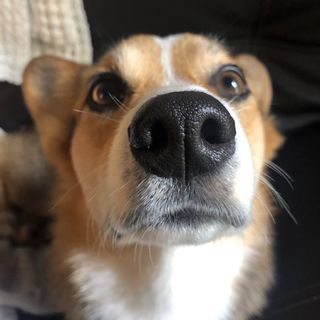Anxiety
A Do-It-Yourself Cure for Your Dog’s Separation Anxiety
Help your dog understand that your “bye!” when leaving isn’t “bye forever!”
Posted February 5, 2020 Reviewed by Chloe Williams

A woman came into Los Angeles City Hall with two tiny, adorable dogs in a stroller—each wearing striped pajamas.
I felt a surge of guilt that my poor doggie has spent her entire life deprived of cute flannel nightwear.
The surge in dog fashion in the past 10 years reflects the huge shift in the place dogs have in our lives. Throughout human history, dogs have been our employees—herding sheep and warding off wild animals and human intruders.
These days, they’ve become more like furry children to many of us. This may contribute to our failure to recognize or remember that their psychology is vastly less sophisticated than ours.
For example, we tend to take for granted that dogs understand things a young child does—like that when "Mommy" goes out the door, she’ll be back; it isn’t “Goodbye forever!”
I was reminded of this when a friend, working from her new apartment, grumbled on Twitter about a dog barking endlessly in the apartment below.
Assuming the neighbors aren’t being burglarized very slowly, their poor pup is probably experiencing separation anxiety, a common problem in dogs.
I wrote about this doggie anguish—and a surprisingly easy way to train a dog out of its anxiety at their human going out the door—in my syndicated advice column:
Anthrozoologist John W.S. Bradshaw explains that over generations, we humans bred dogs to be emotionally dependent on us. Not surprisingly, dogs miss their owners, sometimes desperately, when they are separated from them—and other dogs don't seem to fill the emotional void. In one of Bradshaw's studies—of 40 Labrador retrievers and border collies—"well over 50 percent of the Labs and almost half of the collies showed some kind of separation distress" when left alone.
Fortunately, puppies can be trained to understand that your picking up your car keys isn't human-ese for "Goodbye forever!" Bradshaw's advice in "Dog Sense": "Pick up keys, go to door, praise dog." Next: Pick up keys. Go out door. Come right back in. Praise dog. Next: Go out for increasingly longer intervals—and "go back a stage" (timewise) if the dog shows anxiety.
Doggie separation anxiety can also be an issue even when you’re still in the house.
When I first brought my dog home as a puppy, I had a tiny little gated-off area near my office where I would contain her during the day so she wouldn't get into mischief when I couldn't keep a close eye on her. My house is tiny, so I was always feet away from her, and she'd sleep peacefully or gnaw on her little stuffed alligator.
She sleeps in my bed with me now that she's potty-trained. But before she came to understand that my duvet-covered bed was not a big fluffy toilet, I would set her in her little gated area at bedtime. I'd then get into bed and she'd then wail her little doggie head off... making me really popular with the guy in the apartment next door. I really, really didn’t want to be that neighbor. I had to figure something out fast.
Reflecting on what I’d learned from Bradshaw about dogs being so deeply bonded to their “person,” and then recalling what a great sense of smell dogs have, it occurred to me that my dog might not have to be in bed with me. Maybe just being near me would do the job.
Conveniently, my dog is not some giant, wolfen beast. She’s a foofy little 6-pound Chinese crested, with white pom-pom feet, so it seems there’s Tupperware for this sort of situation: a big see-through-ish rectangular plastic box, 4 feet long, 3 feet high.
I put it next to my bed, put her bed and a pee pad in it, and set my dog down in it.
She turned around three times, curled up, and went to sleep.
I felt enormous relief—and a little guilt at not recognizing a big way dog feelings and human feelings are extremely similar.
As I wrote in my column:
We call dogs “man's best friend” and treat them just like our human best friends—if at 11 p.m. you say to your BFF, "Wow—wouldja look at the time," gently remove her beer from her hand, and usher her to her cage in your laundry room.
Disclosure: “As an Amazon Associate I earn from qualifying purchases.”
References
Bradshaw, John. Dog Sense: How the new science of dog behavior can make you a better friend to your pet. Basic Books, 2012.


